39 Duties And Responsibility Of Banquet Chef | Catering Chef
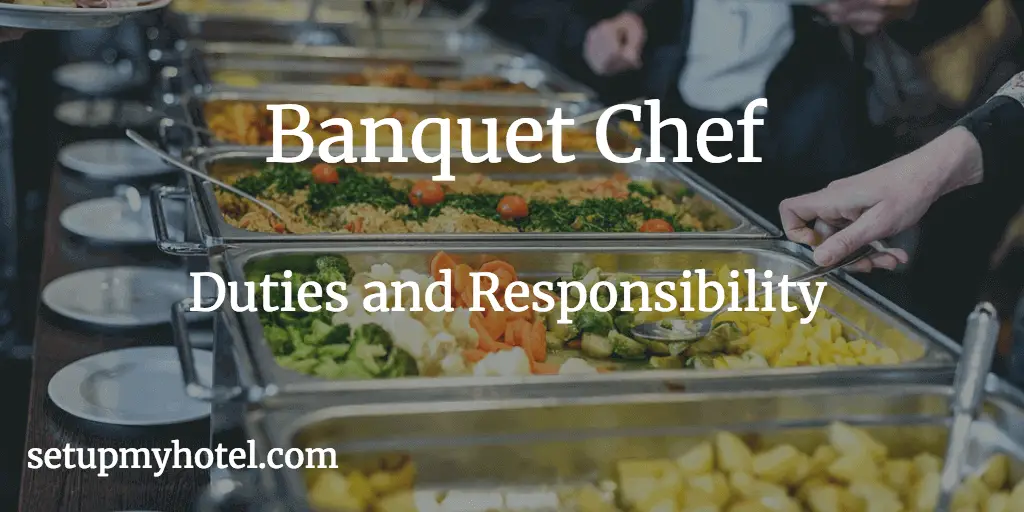
Job Description, Duties, Interview Questions and Salary for Banquet Chef As a Banquet Chef, you will be responsible for overseeing ...
Read more
37 Duties And Responsibility For Executive Chef
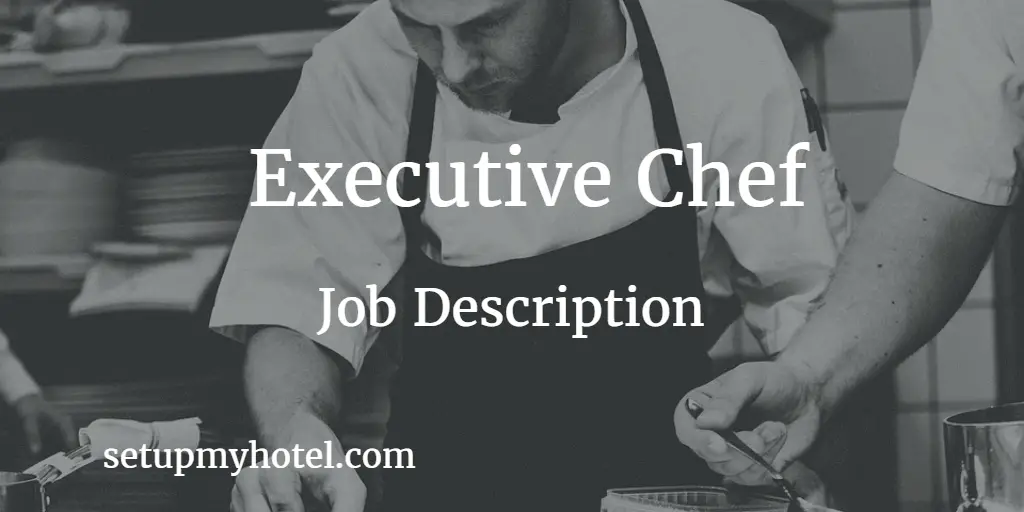
Job Description, Duties, Interview Questions and Salary for Executive Chef Position An executive chef is a highly skilled culinary professional ...
Read more
7 Tips And Tricks For Food Plate & Platter Arrangement – Hotels | Restaurants
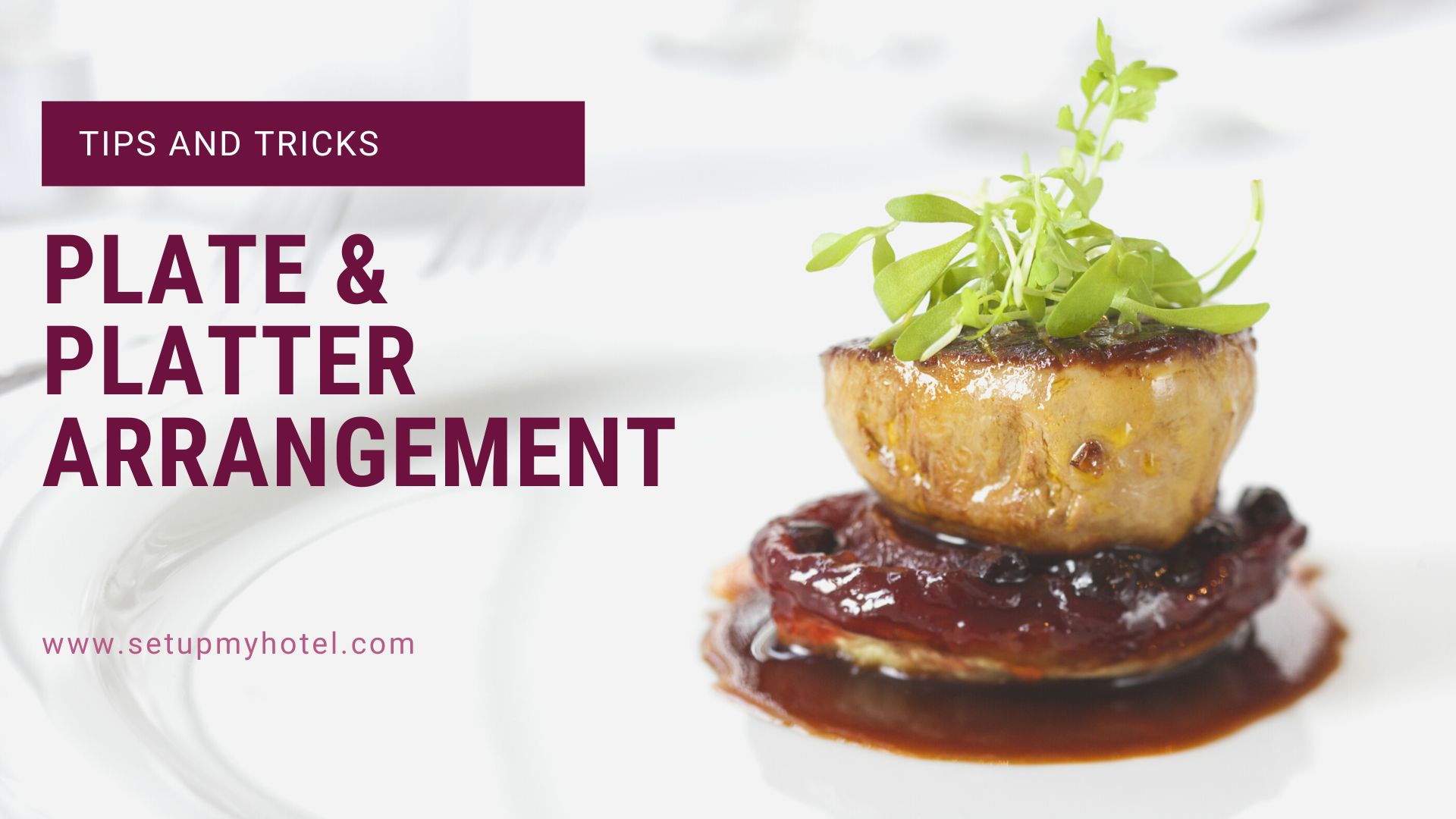
Plate & Platter Arrangement Tips and Tricks For Chef’s 1. Keep food away from the plate’s rim. The meal is supposed ...
Read more
39 Hygiene Rules And Regulations For Kitchen Staff / Chefs
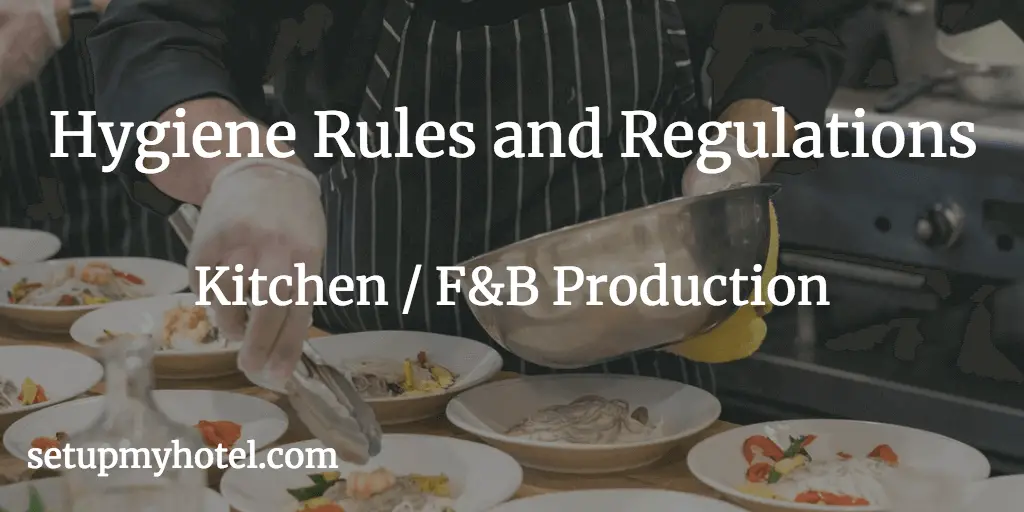
Hygiene Rules for Hotel Kitchen and Food Production Staff Maintaining proper hygiene in a kitchen is essential for the safety ...
Read more
SOP – Kitchen / F&B Production – Kitchen Opening Duties / Preparation for Kitchen Service
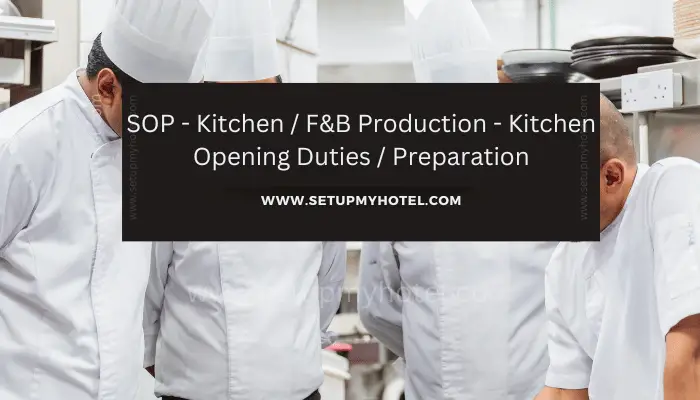
Preparation for Kitchen Service or Kitchen Opening Task Before the kitchen opens for business, there are several tasks that need ...
Read more
SOP – Kitchen / F&B Production – Kitchen Closing Duties
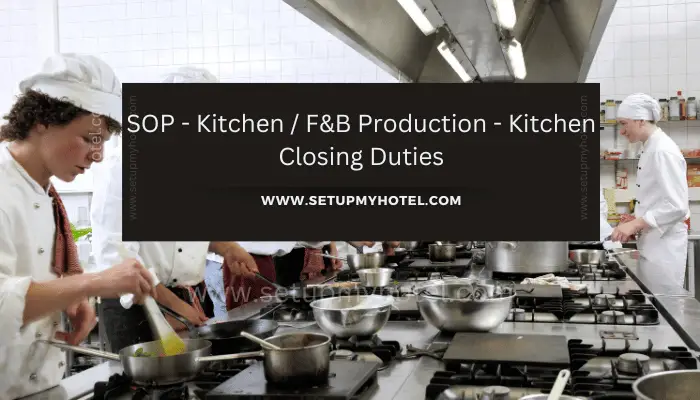
Kitchen Closing Duties or Kitchen Shift End Task After a long day of preparing food and serving customers, it is ...
Read more
SOP – Kitchen / F&B Production – Pest Control Policies
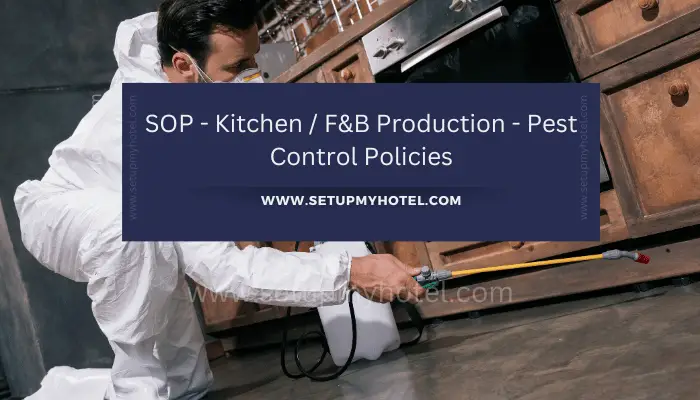
Pest Control Procedure and Policies Pest control is a crucial aspect of maintaining a clean and safe kitchen or food ...
Read more
SOP – Kitchen / F&B Production – Equipment Handling, Cleaning and Sanitising
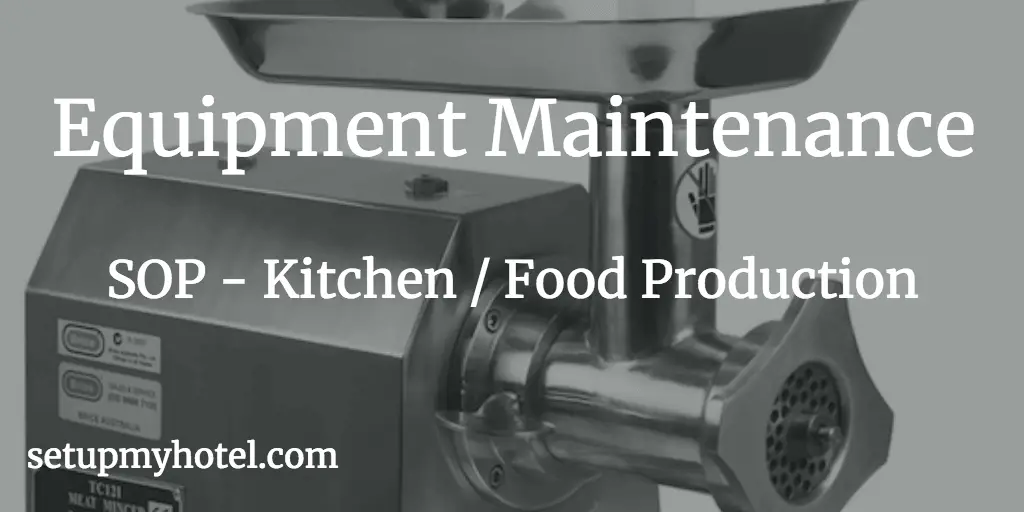
Kitchen Equipment Handling and Maintaining When working in a kitchen or F&B production environment, it is important to know how ...
Read more
SOP – Kitchen / F&B Production – Purchasing Food and Raw Materials
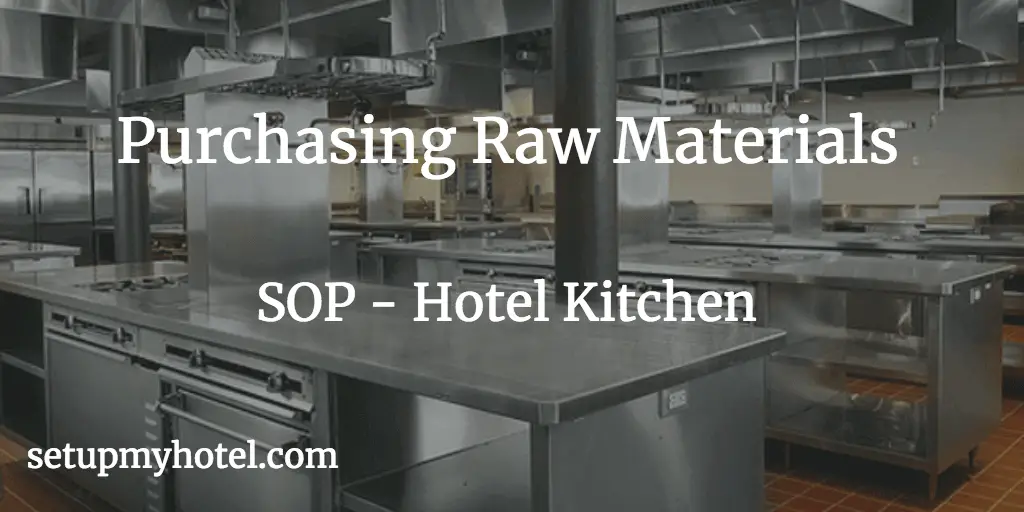
Purchasing Food and Raw Materials in the Hotel Kitchen When it comes to running a successful kitchen or food and ...
Read more
SOP – Kitchen / F&B Production – Holding of Prepared Hot / Cold Foods In Kitchen
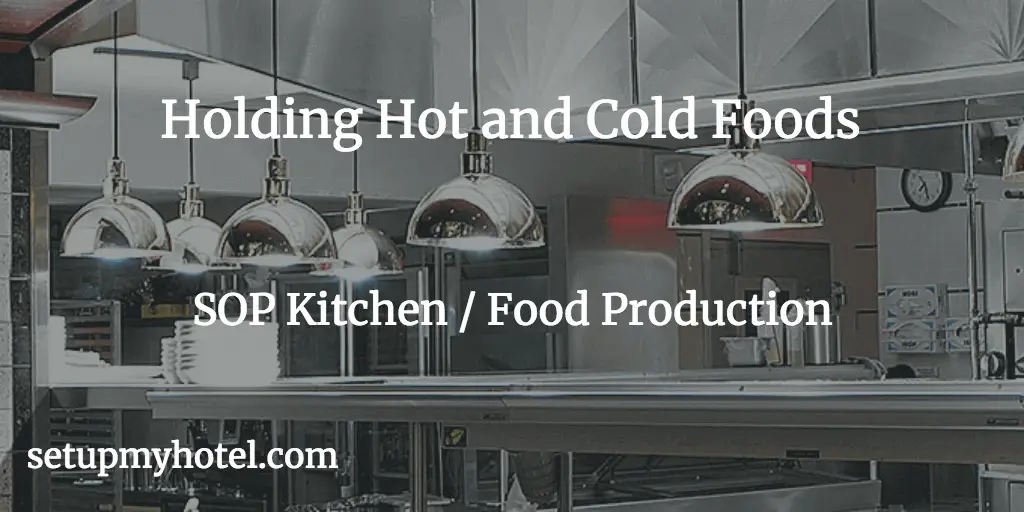
How To Hold Prepared Hot and Cold Foods In any kitchen or food and beverage production facility, it is important ...
Read more










